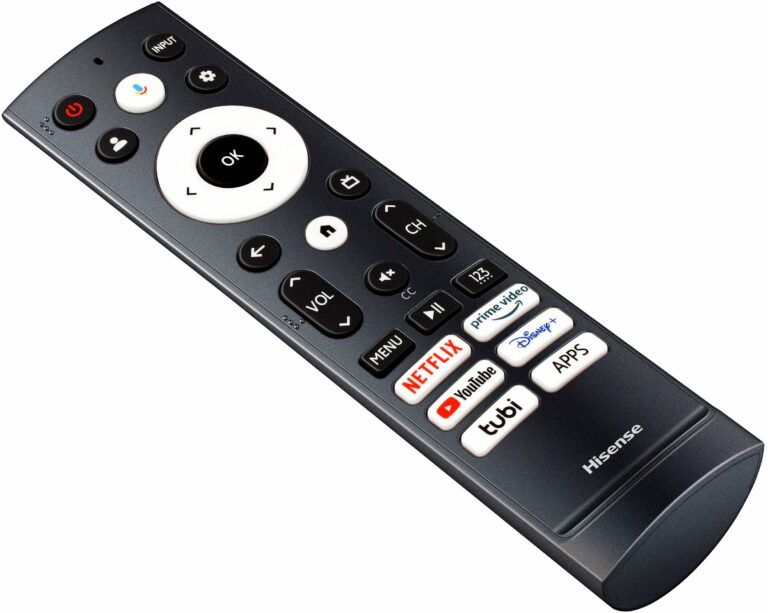Car Brands With Least Repairs: Your Definitive Guide to Automotive Reliability
Car Brands With Least Repairs: Your Definitive Guide to Automotive Reliability cars.truckstrend.com
In the complex world of automotive ownership, few factors weigh as heavily on a buyer’s mind as reliability. The dream of a smooth, uninterrupted driving experience can quickly turn into a nightmare of unexpected breakdowns, costly repairs, and inconvenient trips to the mechanic. Understanding "Car Brands With Least Repairs" isn’t just about saving money; it’s about peace of mind, convenience, and maximizing the longevity and resale value of your vehicle. This comprehensive guide will delve into what makes certain car brands stand out for their exceptional reliability, how to identify them, and what you can do to ensure your next vehicle spends more time on the road and less time in the shop.
Understanding Automotive Reliability: More Than Just Luck
Car Brands With Least Repairs: Your Definitive Guide to Automotive Reliability
Reliability in the automotive context refers to a vehicle’s ability to consistently perform its intended functions over time without experiencing unexpected failures or requiring frequent, unscheduled maintenance. It encompasses the durability of components, the quality of manufacturing, and the soundness of engineering design.
Several organizations meticulously track and report on vehicle reliability, utilizing vast datasets from owner surveys, repair shop records, and long-term testing. Key players in this field include:
- J.D. Power: Known for its annual Vehicle Dependability Study (VDS), which measures problems experienced by original owners of three-year-old vehicles.
- Consumer Reports: Gathers data from its members on problems they’ve encountered with their vehicles, providing detailed reliability ratings for specific models.
- RepairPal: Offers insights into typical repair costs and frequencies based on millions of repair orders.
- TrueDelta: Collects owner-reported repair data directly from a large pool of volunteers.

These reports consistently highlight that certain brands, through a combination of meticulous engineering, rigorous quality control, and a focus on proven technologies, manage to consistently outperform others when it comes to minimizing repair frequency.
The Contenders: Top Car Brands Known for Least Repairs
While reliability can vary by specific model and year, a consistent pattern emerges across industry reports, pointing to a few key brands that reliably top the charts for requiring the fewest repairs.
1. Toyota
Consistently ranked at or near the top, Toyota’s reputation for bulletproof reliability is legendary. From the Corolla to the Camry, RAV4, and Tacoma, Toyota vehicles are engineered with an emphasis on durability and longevity. Their conservative approach to technology, using well-tested components, and rigorous manufacturing processes contribute to fewer unexpected issues. Owners frequently report high mileage with minimal major repairs, leading to excellent resale value.

2. Lexus (Toyota’s Luxury Division)
As Toyota’s luxury arm, Lexus inherits the parent company’s commitment to quality and reliability, often surpassing it in terms of fit, finish, and advanced features. Lexus vehicles routinely top reliability surveys for luxury brands, offering a plush experience without the common pitfalls of frequent, expensive repairs often associated with other premium marques. Their meticulous attention to detail and robust engineering ensure a smooth and worry-free ownership experience.
3. Honda
Honda stands as another pillar of reliability, particularly known for its efficient and durable engines. Models like the Civic, CR-V, and Accord are staples on "most reliable" lists, celebrated for their strong performance, fuel efficiency, and low incidence of mechanical failures. Honda’s engineering philosophy prioritizes functionality and longevity, making their vehicles a popular choice for those seeking dependable daily drivers.
4. Mazda

Mazda has quietly climbed the reliability ranks in recent years, often outperforming many of its larger competitors. Their "Skyactiv" technology, which optimizes engines, transmissions, and chassis for efficiency and performance, has also proven remarkably durable. Mazda vehicles offer a compelling blend of engaging driving dynamics and impressive long-term reliability, making them an excellent choice for drivers who want both fun and dependability.
5. Subaru
While specific models (like older turbocharged engines) might have had their quirks, Subaru’s overall brand reliability is strong, particularly for its all-wheel-drive systems and Boxer engines. Models like the Forester, Outback, and Crosstrek are known for their ruggedness and ability to handle diverse conditions with minimal fuss. Subaru’s focus on safety and durability resonates strongly with owners who value a vehicle that can withstand the test of time and terrain.
6. Acura (Honda’s Luxury Division)
Mirroring Lexus, Acura benefits significantly from Honda’s robust engineering and manufacturing standards. Acura vehicles, such as the MDX and RDX SUVs, and the TLX sedan, provide a blend of luxury, performance, and the underlying reliability that Honda is known for. Owners can expect a refined driving experience with fewer unexpected repair bills compared to many European luxury brands.
Factors Influencing a Car’s Repair Frequency Beyond Brand
While choosing a reliable brand is a crucial first step, a car’s repair frequency is influenced by several other critical factors:
- Maintenance Habits: Adhering to the manufacturer’s recommended maintenance schedule is paramount. Regular oil changes, fluid checks, tire rotations, and timely replacement of wear-and-tear parts can significantly extend a vehicle’s life and prevent major issues.
- Driving Style: Aggressive driving, frequent hard braking, and rapid acceleration put undue stress on a vehicle’s engine, transmission, brakes, and suspension components, leading to premature wear and potential failures. Smooth, defensive driving can dramatically reduce repair needs.
- Environmental Factors: Harsh climates (extreme heat or cold), salted roads, and rough terrain can accelerate wear and tear on various components, from rust on the undercarriage to battery degradation.
- Model-Specific Issues: Even within a highly reliable brand, certain models or specific production years might have known issues or recalls. It’s vital to research the specific model you’re considering.
- Age and Mileage: As vehicles age and accumulate mileage, the likelihood of components wearing out naturally increases. While reliable cars last longer, no vehicle is immune to the effects of time and use.
- Quality of Repairs and Parts: When repairs are necessary, using genuine OEM (Original Equipment Manufacturer) parts and certified mechanics can ensure the repair lasts and doesn’t lead to further issues.
How to Choose a Reliable Car: Practical Advice
Navigating the car market with reliability in mind requires a strategic approach:
- Research Specific Models, Not Just Brands: While brand reliability is a good indicator, dive deeper into the specific model and year you’re interested in. A brand known for reliability might have a less reliable specific model, or vice-versa.
- Consult Multiple Reliability Reports: Don’t rely on a single source. Cross-reference data from Consumer Reports, J.D. Power, RepairPal, and owner forums to get a comprehensive picture. Look for consistent high ratings across various sources.
- Read Owner Reviews and Forums: Real-world owner experiences can provide invaluable insights into common problems, service experiences, and long-term reliability that may not show up in aggregated data immediately.
- Get a Pre-Purchase Inspection (PPI) for Used Cars: For any used vehicle, a thorough inspection by an independent, trusted mechanic is non-negotiable. This can uncover hidden issues that might lead to costly repairs down the line.
- Consider Certified Pre-Owned (CPO) Vehicles: CPO programs often include extended warranties and rigorous inspections, offering a higher degree of confidence than a standard used car purchase.
- Understand Warranty Coverage: A robust warranty can offer protection against unexpected repairs, especially for newer vehicles. Ensure you understand what is covered and for how long.
- Factor in Long-Term Maintenance Costs: Even reliable cars need maintenance. Research the typical cost of routine servicing and common wear-and-tear parts for the models you’re considering.
Maintaining Your Car for Fewer Repairs: Tips & Best Practices
Even the most reliable car needs care. Your proactive maintenance habits are a huge determinant of how many repairs your car will need.
- Strictly Follow the Manufacturer’s Maintenance Schedule: This is your bible. It outlines when to perform oil changes, tire rotations, fluid flushes, filter replacements, and major inspections. Skipping these can lead to premature wear and costly breakdowns.
- Use Quality Parts and Fluids: Don’t skimp on oil, filters, or replacement parts. Using recommended viscosity oil, genuine OEM parts, or high-quality aftermarket equivalents can make a big difference in component longevity.
- Address Warning Lights Promptly: A check engine light, low tire pressure warning, or any other indicator should never be ignored. Get your vehicle diagnosed and repaired as soon as possible to prevent minor issues from escalating.
- Drive Responsibly: Avoid aggressive acceleration, harsh braking, and speeding. These habits stress the engine, transmission, brakes, and suspension, leading to faster wear and tear.
- Keep Records of All Maintenance: A well-documented service history is invaluable for tracking your car’s health and can significantly boost its resale value.
- Regularly Check Fluid Levels and Tire Pressure: These simple checks can prevent major problems. Low oil, coolant, or transmission fluid can lead to catastrophic engine damage. Correct tire pressure improves fuel economy and tire life.
Car Brands With Least Repairs: Reliability Overview Table
While "price" for "least repairs" isn’t a direct monetary value, we can interpret it as the cost of ownership related to repairs, or the likelihood of incurring repair costs. Below is a qualitative table summarizing top brands and their general reliability profile based on industry trends.
| Car Brand | Typical Reliability Score (Qualitative) | General Annual Repair Cost (Qualitative) | Key Reasons for Reliability |
|---|---|---|---|
| Toyota | Excellent (5/5) | Very Low | Conservative engineering, high-quality manufacturing, proven components. |
| Lexus | Excellent (5/5) | Very Low (for a luxury brand) | Toyota’s reliability foundation, meticulous quality control, advanced materials. |
| Honda | Excellent (4.5/5) | Low | Durable engines, robust transmissions, focus on core functionality. |
| Mazda | Excellent (4.5/5) | Low | "Skyactiv" efficiency and durability, high-quality materials, attention to detail. |
| Subaru | Very Good (4/5) | Low to Moderate | Rugged AWD systems, durable Boxer engines (some specific models may vary). |
| Acura | Very Good (4/5) | Low to Moderate (for a luxury brand) | Honda’s engineering standards, solid build quality, reliable powertrains. |
Note: The "Typical Reliability Score" is a qualitative representation based on common industry reports, where 5/5 indicates consistently topping charts. "General Annual Repair Cost" is a qualitative assessment of the likelihood and average cost of unexpected repairs, not routine maintenance.
Frequently Asked Questions (FAQ)
Q1: Are luxury cars generally less reliable than mainstream brands?
A1: Often, yes. Many luxury brands incorporate more complex technologies and exotic materials, which can increase the likelihood and cost of repairs. However, brands like Lexus and Acura are notable exceptions, consistently demonstrating high reliability despite their luxury status.
Q2: Do electric cars require fewer repairs than gasoline cars?
A2: Generally, yes. Electric vehicles (EVs) have significantly fewer moving parts than internal combustion engine (ICE) vehicles. There’s no engine, transmission, exhaust system, or complex fuel system to maintain, leading to potentially fewer mechanical repairs. However, battery degradation over time and the cost of replacing specialized EV components are considerations.
Q3: How much does regular maintenance truly affect a car’s reliability?
A3: It’s perhaps the single biggest owner-controlled factor. Skipping routine maintenance accelerates wear and tear, leading to premature component failure and costly repairs. Adhering to the manufacturer’s schedule can dramatically extend your vehicle’s lifespan and minimize unexpected issues.
Q4: What’s the difference between reliability and durability?
A4: Reliability refers to how often a car breaks down or requires unscheduled repairs. Durability refers to how long a car’s components last under normal conditions. A durable car is often reliable, but a reliable car might not always be the most durable in extreme conditions. In essence, reliability is about consistent performance without failure, while durability is about resistance to wear and tear over time.
Q5: Should I always buy a new car for maximum reliability?
A5: Not necessarily. While new cars come with a fresh warranty, certified pre-owned (CPO) vehicles from reliable brands, especially those 2-3 years old, can offer excellent reliability at a lower purchase price. They’ve often depreciated significantly but still have many reliable years ahead, often backed by a manufacturer warranty.
Conclusion
Choosing a car brand with a reputation for least repairs is a smart financial and practical decision. Brands like Toyota, Lexus, Honda, and Mazda consistently demonstrate their commitment to quality, offering vehicles that stand the test of time with minimal fuss. However, a brand’s reputation is only part of the equation. Your diligence in researching specific models, getting thorough inspections, and committing to a rigorous maintenance schedule are equally vital. By combining smart purchasing decisions with responsible ownership, you can ensure your vehicle remains a reliable partner on the road for years to come, providing the peace of mind and savings you deserve.




